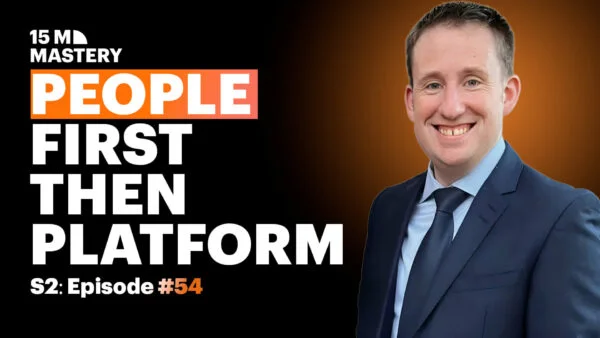Why Configuration Beats Customisation in Global iGaming Launches
Michael Jack, CTO of Sportintech, has navigated these choppy waters multiple times, most recently with Brazil’s rapid market opening. His approach reveals why technical flexibility trumps feature complexity when conquering new territories.
The Reality of Launching in Emerging Markets
Brazil’s market opening exemplified everything challenging about regulated launches. “The rules and regulations and legislation was changing right up until the wire,” Jack explains. “Then actually changing requirements, right, now we need to follow those changes as well.”
These aggressive timescales create enormous pressure on technical teams. Success demands robust compliance expertise and agile development practices. Jack’s team survived Brazil’s “spicy time” through dedicated technical compliance specialists who interpreted evolving rules into functional requirements.
The scale of opportunity makes these challenges worthwhile. Sportintech now powers several top-ten Brazilian operators, handling enormous traffic volumes from day one.
Why Casino Scaling Differs from Sportsbook Operations
Many assume Brazil would focus primarily on sports betting. However, casino traffic has exceeded expectations, presenting unique technical challenges.
“Scaling a casino is less complex than scaling a sports book,” Jack notes. “You think of the sports book and the dynamic catalogue of events you’ve got in there, all the sports, you’ve got all the betting opportunities, the frequency of price changes.”
This complexity difference stems from sports betting’s constantly shifting variables. Casino games maintain relatively static states, making integration and scaling more predictable. Load testing casino integrations proves simpler than managing thousands of live odds fluctuations.
Building Platforms That Work Everywhere
Global operators need solutions that adapt without architectural overhauls. Jack’s answer centres on intelligent configuration rather than market-specific builds.
“You maintain a single code base for your deployments around the world and for your operators, but have the ability to toggle functionality on and off depending on what the market requires,” he explains.
This approach demands disciplined development practices. Every new feature must include toggleable functionality from conception. The result eliminates duplicate codebases whilst ensuring compliance flexibility across jurisdictions.
Adapting Technology for Local Infrastructure
Technical requirements vary dramatically between markets. Infrastructure limitations in emerging markets demand different approaches than established territories.
“Not everybody in certain jurisdictions have the latest iPhone,” Jack observes. “They may be operating on a much lower screen resolution, much lower bandwidth device.”
Solutions include content delivery networks placing servers geographically closer to players. However, hardware limitations require additional considerations. Lower-bandwidth alternatives and reduced-resolution interfaces become essential for markets with infrastructure constraints.
Geographic proximity matters for more than content delivery. Technical infrastructure must physically reside near players to minimise latency and maximise performance.
Staying Compliant in a Changing Landscape
Regulatory compliance requires dedicated resources and constant vigilance. Jack’s team includes specialists who monitor legislative developments across multiple jurisdictions.
“It is a full-time job to stay compliant in the ever-changing world of regulated markets,” he emphasises. This involves tracking pending legislation, consulting local experts, and sometimes engaging lawyers for interpretation clarity.
Interestingly, Jack sees regulation driving innovation. “Those regulations force you to innovate, that forces you to rethink and find a different approach to doing something.” Bonusing restrictions, for example, push creative marketing solutions within regulatory boundaries.
Common Operator Mistakes During Market Entry
Operators frequently underestimate their own responsibilities during market launches. “There is often an assumption that all responsibility lies on the platform provider and there’s nothing for them to do internally,” Jack reveals.
This misconception creates friction and delays. Platform providers cannot handle every aspect of market entry independently. Operators must understand their internal requirements and prepare accordingly.
Education becomes crucial. Jack’s team proactively guides operators through their responsibilities, ensuring realistic expectations and smoother launches.
Security Certifications: Beyond Compliance
Sportintech recently achieved ISO 27001 certification, representing significant security commitment. Jack advocates for thorough preparation rather than minimal compliance.
“I would have much rather do all the hard work to get there,” he explains. “Let’s do all the hard work to make sure we’re deserving of the certificate, then do the audit.”
For players, this certification provides confidence that their data receives proper protection. For operators, it demonstrates platform security standards and regulatory readiness in jurisdictions requiring such certifications.
Key Takeaways for Market Success
Successful market entry requires technical flexibility, regulatory expertise, and realistic planning. Configuration-based platforms outperform customised solutions for global operators. Infrastructure adaptation ensures performance across diverse markets and device capabilities.
Most importantly, collaboration between platform providers and operators determines launch success. Clear responsibility allocation and proactive education prevent costly delays and ensure regulatory compliance from day one.

